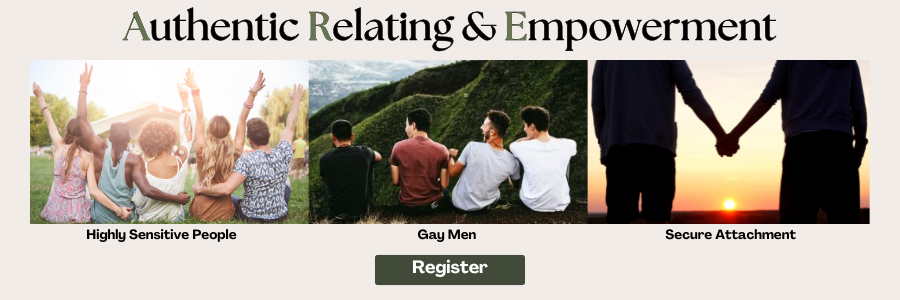Sensitive people are often perceived by society as delicate, weak, or fragile. Someone who gets hurt easily that people need to walk around on eggshells. This is why many people reject their sensitivity and condition themselves to be something they are not. This is a limited way of perceiving sensitivity that leads to stigma and, therefore, people choosing not to identify with the trait.
There is a ton of scientific research on the trait of sensitivity and, more specifically, sensory processing sensitivity (SPS), which is the trait that makes someone a highly sensitive person (HSP).
Let’s unpack both the science and the stigma a little further to get a clearer understanding of what it truly means to be a highly sensitive person…
The science of sensitivity
Sensitivity is the result of an inherited trait called Sensory Processing Sensitivity (SPS). SPS is a temperamental or personality trait involving an increased sensitivity of the nervous system and a deeper processing of physical, social, and emotional stimuli.
Some important facts about the science of sensitivity:
- Approximately 15-20% of humans possess the trait of SPS
- There is an equal distribution of men and woman
- It is not a disease or disorder; it is a personality trait
- Sensitive people have more mirror neurons which can lead to greater empathy
- SPS can be observed within most species and is seen as an adaptation for survival of that species
How does being sensitive impact someone?
- Sensitive people process information deeply due to being keenly aware (sensitive) of their environment.
- Processing so much information can be overstimulating. Many sensitive people report overstimulation as the hardest part of being sensitive.
- Many sensitives have emotional reactivity due to feeling overstimulated. When we learn how to manage our exposure to stimulus we get better at emotion regulation too.
- Sensitive people tend to possess more empathy than non-sensitive people because we have more mirror neurons. This means we tend to be deep feelers and can even feel what others are feeling as well.
- Sensitive people tend to easily notice subtleties in their environment. This is because of the depth at which they process information; they notice things that non-sensitive people may not.
The stigma of sensitivity
Due to the social conditioning many of us have around sensitivity and emotions, we tend to carry negative biases about what it means to be sensitive. This might look like seeing sensitive people as weak, dramatic, overly emotional, easily hurt, fragile, delicate, feminine, needy, difficult, or high maintenance.
Sensitive people are often perceived by society as delicate, weak, or fragile. Someone who gets hurt easily, and you need to walk on eggshells around. This is a limited way to perceive sensitivity especially when you don’t understand the science of the trait.
Sensitive people get easily overstimulated by their environment due to sensory sensitivities (loud sounds, bright lights, too much going on at once, strong smells, etc). Imagine what it would feel like to feel constantly overwhelmed by the stimulus around you…
Is it true that sensitive people are more emotional than non-sensitive people?
Yes, it can mean this, but not in all cases. This is part of the stigma. People who don’t know what’s happening on the inside of a sensitive person and just see the display of emotions may see them as overly emotional.
This is how it usually works for many sensitives:
- Too much stimulus
- There is no way to turn down the volume of that stimulus
- Irritability sets in
- The sensitive person is on edge when interacting with others
- This appears as emotionally “sensitive” to the other person
- In actuality, their nervous system is on overdrive, making it really hard to regulate their emotions
The sensitive person needs to learn sensory regulation and soothing techniques, as well as self-care practices to tend to their sensitivity. Once they learn these strategies, they can become better at managing their emotions and appear less “sensitive” to others. You can support a sensitive person by practicing empathy with them. Knowing they are processing a lot of stimuli can help you be more patient with them.
Here are 10 signs you might be a highly sensitive person:

1. You have a deep appreciation for music and the arts
Many HSPs are deep feelers. When we listen to music, enjoy a movie, or indulge in other artistic experiences, we easily access the vibration of joy and inspiration. This means we can have an enriched experience of the arts. Many HSPs describe their heightened senses as living life in high definition. This can be awe-inspiring when engaging in activities that involve stimulating the senses in just the right way.
2. You have a strong intuition
Many HSPs possess the ability to connect to what is true. We are connected to the part of ourselves that can feel things before they happen. Some call it a sixth sense, and many HSPs have this sense. It can be a beautiful gift when you learn to trust your intuition and listen to it without a doubt. We have access to an internal guidance system that is showing us the way; all we need to do is make time to tune in and listen.
3. You strongly dislike small talk
Most HSPs thrive in smaller social gatherings where 1:1 connections are primary and small group chats are secondary. Smaller gatherings tend to lend themselves to more intimate conversations – something HSP loves. Most HSPs will stray away from small talk because this feels inauthentic and forced.
Many HSPs get easily exhausted in social situations and need to limit their exposure to groups or crowds. This can be frustrating because it means we sometimes have to turn down things we want to do but just don’t have the bandwidth. This can lead to FOMO or feeling left out.
Tip: Surround yourself with people who understand your sensory sensitivities so you can still go out with people and be authentic about your experience. Learning to advocate for the types of stimulating conversations you need is key to social satisfaction.
4. You cannot tolerate inauthentic or fake people
Most HSPs thrive when they are around people who are authentic. When they see people being inauthentic it might bring up the part in them that feels insecure about being judged and unable to feel safe to let their guard down. The other instance might be that they don’t feel stimulated by inauthentic people because they feel like they are holding back and not willing to practice vulnerability – something HSPs are drawn to because they find it fascinating.

5. You’ve always felt a little different than the majority of people
Due to the unique and complex needs most HSPs have, it’s easy for many of us to grow up feeling different and really internalize that. Some of us may have used it as motivation to celebrate our uniqueness, whereas some of us may have been traumatized by feeling othered most of our lives – whether we did it to ourselves or others did it to us, the impact is often similar.
Many HSPs had difficult childhoods because they had to navigate being different and having different needs than other people. Some of us hid these needs and tried to fit in, and some of us isolated and never really got our needs met.
6. You tend to spend a lot of time alone
Many HSPs are fairly comfortable with being alone. We have a rich inner world, and we enjoy being in the company of our own thoughts, feelings, and sensations. This is a beautiful skill to have because, after all, the most important relationship we have is the one with ourselves.
There can also be a disempowered side to this because we can also develop a lone wolf syndrome and not put ourselves out there because we are afraid of judgment or rejection. The key is to strive for balance and let your sense of happiness guide you. Learn how an HSP becomes a lone wolf by reading this blog: How an HSP becomes a lone wolf
7. You can easily read the energy of others
Many HSPs can walk into a room and immediately feel the energy in that room. From tension to joy, we feel it all. We also have a built-in bullshit detector because we are so tuned into others and can notice subtleties in changes of things like body language and tone of voice. You can’t get much past an HSP. We are way too perceptive to be in the presence of dishonesty without feeling it. This gives us an advantage in who we may want to surround ourselves with.
8. You are sensitive to your environment
Many of us have heightened sensitivities to taste, smell, sight, sound and feeling. This might mean that you really get to enjoy the pleasurable things in life that much more. That sunset can be extra vivid, that chocolate cake can taste extra yummy, and that massage literally melts you into the table.
However, many of us need to stay away from certain foods or chemicals because they make us feel terrible. This can really limit us in social situations and make us appear high maintenance or too picky. We also can be easily overstimulated by bright lights, loud sounds, strong smells, scratchy fabrics, etc.
9. You feel your emotions intensely
Many HSPs are deep feelers. This means we feel positive and negative emotions deeply. This can be extremely overwhelming if we don’t have an emotion regulation practice to fall back on.
Tip: learn how to feel and regulate your emotions. Many of us avoid our feelings through distraction and numbing so we have a backlog of unprocessed emotions. The more you allow yourself to feel these feelings, the less stimulated you will be with day-to-day feelings.
10. You are easily overstimulated or overwhelmed by this world
Due to our depth of processing information, we are susceptible to overstimulation and overwhelm. We often see things others don’t due to the depth at which we process information. Taking in too much information can be extremely overstimulating to the nervous system.
Tip: take breaks from processing information by simply closing your eyes or wearing earplugs. It makes it feel much more manageable, and you won’t find yourself overstimulated as easily.
If you resonated with most of these signs, then you are likely a highly sensitive person. It can be a curse or a gift depending on how you relate to your sensitivity. If you reject or deny it, it can easily become a curse. If you learn about it and embrace it, it can become a gift.
When you embrace your sensitivity and start surrounding yourself with other sensitive people, something magical happens; you finally feel at home. A lifetime of feeling different or weird just melts away, and you start to feel like you belong to a group of people just like you.
The key to this transformation is to unlearn the programming you may have inherited about what it means to be sensitive and start letting your authentic self be seen. Many of us have to unlearn the non-sensitive owner manual we were given in childhood and learn the HSP owner manual if we want to truly thrive as an HSP.
Discover if you are an HSP by taking the test: Are You Highly Sensitive?
Lift your cheekbones,
Matt














